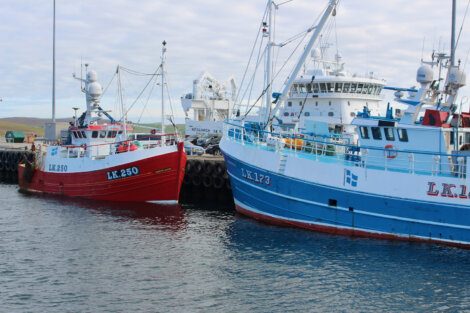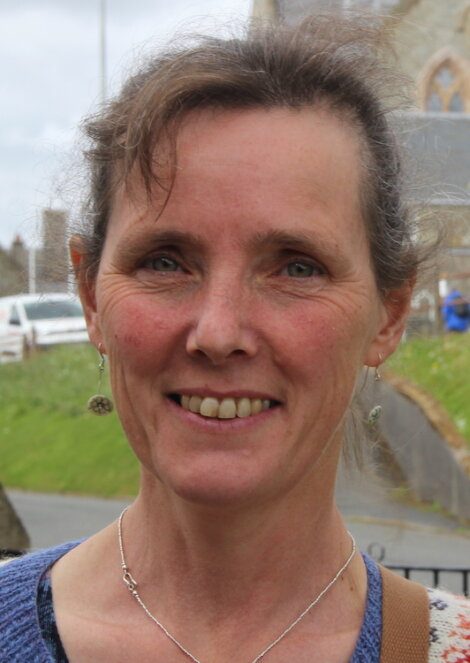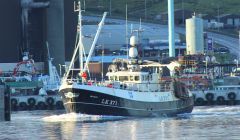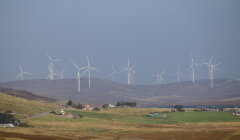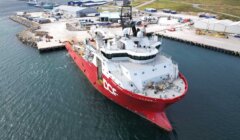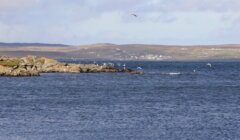Energy / Councillor does not want fishing to be ‘sacrificed at the altar of green energy’
A SHETLAND councillor has called on the local authority to ensure that the fishing and aquaculture sectors are not “sacrificed at the altar of green energy”.
Lerwick South member John Fraser said the community is “dependent” on the fishing industry and highlighted the sustainability of the sector amid plans for offshore wind farms to the east of Shetland.
It comes as two offshore wind developments are proposed east of Shetland, which has raised deep concern from the local fishing sector.
Last week following a consultation event on the Stoura offshore wind farm, Shetland Fishermen’s Association executive officer Daniel Lawson said part of that project’s site included “prime” fishing grounds.
The topic reared its head at a meeting of the full Shetland Islands Council (SIC) on Wednesday as elected members discussed the local authority’s updated draft energy strategy.
At the meeting questions were also raised over the impact the Labour government’s new ‘GB Energy’ organisation could have on Shetland now that has been confirmed it will be based in Aberdeen.
And one councillor said the SIC may have to recognise in the future when “enough is enough” regarding future energy developments in and around Shetland.
The council’s draft energy strategy comes against the backdrop of significant future activity in and around Shetland in the move towards net zero.
This includes proposals for future onshore and offshore wind farms and potential hydrogen production.
There is also a proposal for a second subsea power link between Shetland and the Scottish mainland, which could be three times the capacity of the existing one.
Councillors were advised that consultants are currently compiling a report on community benefit models.
This work, undertaken by Aquatera in partnership with VOAR Energy and Community Energy Scotland, will assess whether existing community benefit models are “securing best economic return for Shetland”.
Become a member of Shetland News
A report on this study is expected in November.
It comes at a time when there has been significant public discussion over the benefits to islanders from the recently launched Viking Energy wind farm in the Shetland mainland, which will offer £2.2 million a year in community benefit as well as provide a return on Shetland Charitable Trust’s investment in the project.
The report to elected members also said work is progressing on policy guidance to “address council concerns about the apparent unlimited nature of large scale energy development both on the Shetland landscape and on the seas around Shetland”.
Future energy manager Douglas Irvine said he has done work on this area but has yet to share it with colleagues.
Shetland Central councillor Moraig Lyall – who chairs the SIC’s environment and transport committee – suggested though that “time is of the essence”.
North Isles member Duncan Anderson also said there was a “relentless drive” to net zero which puts risk on important Shetland interests like fishing.
“While it’s important that the council tries to get what we can out of developments, we also need to be able to recognise that there might come a point where we have to say enough is enough,” he said.
Lyall meanwhile said “we have to ensure that we are not completely overwhelmed by a tidal wave of energy projects that we have no ability to stop”.
“Setting out sooner rather than later where we see the limits for us as an island group I think is going to be a very important part of negotiating the years ahead,” she added.
Meanwhile Stephen Leask asked if Shetland might see benefits from Labour’s GB Energy plans.
GB Energy is described as a “new publicly owned, clean power company for Britain”.
Among its priorities is developing “small-scale and medium-scale” energy projects” which would see profits go back into communities to “cut bills”.
Irvine responded to Leask’s question by saying it “may well have an impact on what we do here in Shetland”.
“It would be important to understand a little better what it actually means,” he added.
“But at this stage the government’s policy is only emerging.”
Leask said it was important for the SIC to consult with the UK Government on the GB Energy plans to make sure Shetland gets as much as possible out of the project.
But leader Emma Macdonald added that at this stage she was “really unsure what GB Energy really looks like”.
“But we’re definitely open to engaging with them,” she said.
Regarding fishing, development committee chairman Dennis Leask said the council tries to support the industry at “every opportunity possible”.
Green councillor Alex Armitage also said fishing was an important tool in decarbonising food production.
“The seas around Shetland have huge potential in assisting the decarbonisation of food production through supporting and proliferating our fishing industry, as much as they do in terms of decarbonising our energy production through offshore wind farms,” he said.
Meanwhile Shetland South member Allison Duncan said he felt oil and gas production “must continue” in the meantime – including from the planned Rosebank field north west of the isles.
Become a member of Shetland News
Shetland News is asking its many readers to consider paying for membership to get additional features and services: -
- Remove non-local ads;
- Bookmark posts to read later;
- Exclusive curated weekly newsletter;
- Hide membership messages;
- Comments open for discussion.
If you appreciate what we do and feel strongly about impartial local journalism, then please become a member of Shetland News by either making a single payment, or setting up a monthly, quarterly or yearly subscription.






